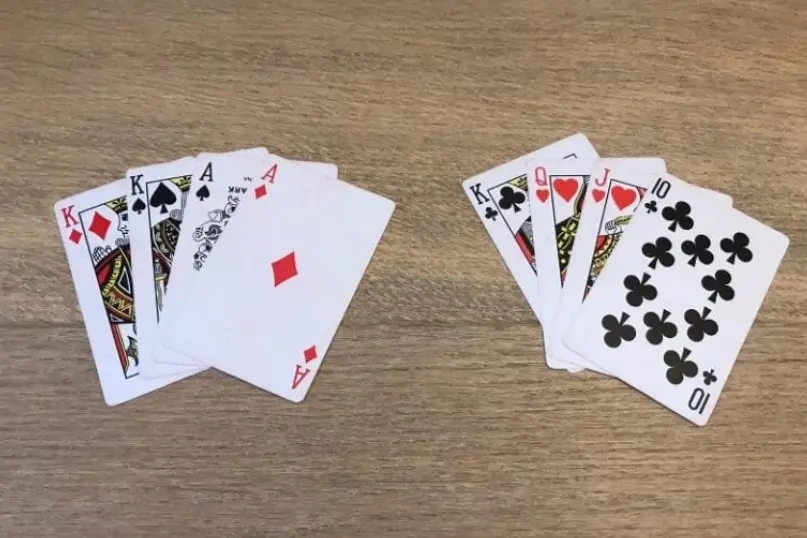Introduction
Omaha is a game that excels on strategy, odds, and knowing the cards you currently have. Omaha presents players with a different dynamic than other variations as they are given four cards instead of two. This rise in hand potential implies players have to review their opening cards closely to maximize their chances of victory. In this regard, understanding the best starting hands can make a big difference in how the game turns out and offers a solid basis for a measured approach to every round.
Finding the ideal beginning hand in Omaha calls for more than simply card counting. It entails evaluating their synergy, realizing their possibilities for great combinations, and projecting how the communal cards might either increase or reduce their value. We will discuss in this post what makes a strong starting hand in Omaha, why certain hands perform better than others, and how players could use this information for more successful games.
While Omaha poker is all about strategy and knowing your hand, sometimes it’s nice to switch things up. If you’re looking for something fun and fast, the Aviator game could be just what you need. The aviator-game-app offers an exciting gaming experience right from your phone, and you can start playing and winning in no time.
Omaha Starting Hands: The Foundations
Every player in Omaha gets four cards that shape their approach. To get the best hand available, one wants to combine exactly two of these cards with three of the community cards. Unlike other https://byroncenternailsalon.com games, this crucial rule makes hand selection more difficult since players have to examine not only individual card power but also how the cards interact to produce reasonable combinations.
A solid starting point in Omaha is one that is well-rounded and provides several chances for significant results. This covers high pairs, appropriate cards for flushes, and straight sequences. The variety of these choices lets a player stay competitive all through the game even as the communal cards alter the terrain of options.
Appropriate Aces: A Strong Starting Choice
Suited aces are among Omaha’s best starting combinations, especially when they are matched by cards supporting straight or flush potentials. Because they offer the chance for a nut flush the highest-ranking flush suited aces are quite valuable. A hand featuring the Ace and King of the same suit, for instance, together with other related or complimentary cards, generates a strong beginning point.
Furthermore adding flexibility is this kind of hand. Should the flush fail to materialize, the extra cards could create straight lines or high pairs, therefore providing the player with other routes to success. The adaptability of appropriate aces guarantees that players stay in strong contention independent of the distribution of the community cards.
Double-Paired Hands: Possibilities For A Full House
Another great beginning combination in Omaha is double-paired hands of two Kings and two Queens. Strong pairs and the possibility to develop into a full house should the communal cards line up favorably provide these hands both advantages. For instance, the player might have one of the best results in the game if the board shows matching cards that accentuate the pairs in hand.
Double-paired hands do, however, have certain dangers even if they are strong. The value of the hand could lessen without appropriate synergy between the player’s cards and the community cards. Players must keep alert and change their approach as the game goes on.
Connected Notes For Straight Potential
In Omaha, hands with related cards such as 10 and Jack or 8 and 9 have great potential for straight play. These cards become much more valuable when they are matched with others that improve their adaptability, like appropriate combos. Often securing a winning position, a starting hand with related cards lets players chase direct outcomes.
Connected cards are strongest in their flexibility. They provide players greater chances to rule the game since they can create competitive hands using a great variety of community cards. Furthermore, connected cards can add to strong multi-way hands when mixed with valuable cards like Aces or Kings.
The Value Of Harmony In Starting Hands
Although particular combinations like matched Aces or double-paired cards are strong, the balance of a starting hand in Omaha is its actual strength. One with a balanced hand provides several paths for success, including those of straight lines, flushes, and high pairs. This variety guarantees that participants are not unduly dependent on one result, therefore lowering their chance of being outplayed by better groupings.
For a balanced beginning point, for instance, a hand with the Ace and King of the same suit combined with related cards like Queen and Jack. The community cards will determine whether a hand develops into a flush, a straight, or even high pairs. Balanced hands are some of the most sought-after in Omaha because of their flexibility.
Conclusion
As the game progresses players should stay flexible and receptive to adjusting their approach. Based on the community cards and opponent behavior, even the finest beginning hand could need changes. Players that remain adaptable and concentrated will enhance their chances of success in every round.
The best beginning hands in Omaha blend strength, adaptability, and balance. Strong foundations for successful gameplay come from suited aces, double-paired hands, and connected cards, which also present many chances to build winning combinations. The secret to success, though, is knowing how to modify these hands to fit the game’s dynamics and considering elements such as location, community cards, and opponent behavior.
By concentrating on these values, players can approach every game with assurance, using their starting hands to create competitive plans and best their chances for winning. Whether you play Omaha often or just recently, knowing the subtleties of opening hands is a crucial first step toward learning this fast-paced and thrilling card game.
Also Read-Can Poker Be Considered A Game Of Skill?
